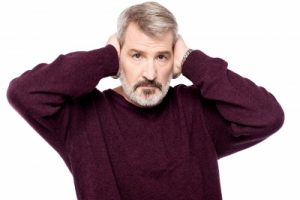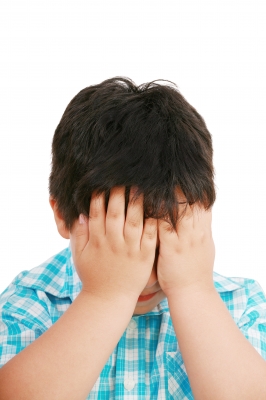We can’t be healthy alone
In America, we frame our ability to succeed in terms of our own skills and hard work. We are typically incentivized to win, to become that next big star, to reach that next milestone, or to become famous.
This constant competitiveness creates an us vs. them mentality. It has made us reward and idolize those that have made it, and neglect those that struggle.
And for those who have made it, well, it’s been great for them. But meanwhile more and more of us are living paycheck to paycheck. More and more of us are facing homelessness. More and more of us are becoming depressed, addicted and suicidal.
Read More
A New Discovery about the link between Stress, Sleep and Healing
If a client is struggling with several chronic conditions where their problems are growing, I often find out that they aren’t sleeping well.
Sleep is vital for our bodies to repair.
Why?
Our bodies operate in two main modes. We have an autonomic nervous system that operates either in a rest and digest state, called the parasympathetic nervous system, or the fight and flight state, called the sympathetic nervous system. Our bodies cannot operate in both modes simultaneously. By default, the parasympathetic nervous system turns off the sympathetic nervous system.
Our bodies need to be able to default to the parasympathetic state in order to heal. And a lack of sleep might indicate that we can’t relax enough for our bodies to repair. Our bodies cannot both be in fight or flight, and rest and digest at the same time.
We have also known that sleep helps solidify what we’ve learned, and that our brains detoxify during sleep.
But recently, a new discovery at the University of Rochester shows a clear demonstration of how stress inhibits both our ability to sleep, and our ability to heal.
Read MoreWe Need Trust to Thrive
My world without trust
I grew up in an environment where I was regularly criticized, berated, or yelled at for minor infractions. I never knew when the tirades would come, and so I tried at all costs to avoid my parents. But it wasn’t easy to thrive in our small home. I didn’t know who I could trust. I felt like I was constantly walking on eggshells, and because I felt I could be blamed for just about anything, the world did not feel like a safe, just, or fair place to be.
It took decades to finally understand the diagnoses that explained my parent’s behaviors. But as a kid, it was much harder to make sense of the anger. I alternated between trying to please them and lashing out. Because I couldn’t make sense of my life at home and lacked healthy parenting, I had to draw my own conclusions about the world. I decided that I had to take care of myself. I couldn’t trust people of authority or God. Love wasn’t something that I could count on. I couldn’t trust that good things or good people could come my way.
Read MoreSix Steps to Handling Stressful Situations We Can’t Control
This year America has been in crisis mode! With Hurricane Harvey and then Irma, the fires in the West coast, and the threats of nuclear war, I found the news to be extremely stressful! Lucky for me, this onslaught of bad news came when I was able to handle it. Years ago, I would have probably gotten overwhelmed and freaked out, and it would have effected my ability to work and sleep.
When the bad news just keeps coming, what is the best way to get through it and stay strong?
Read More5 Steps to Recover From The 2016 Election
Many people I know, including myself, are struggling to grapple with the implications of this election. Not only has a racist xenophobe won the election, but Republicans will now have complete control over every branch of government. For those of us concerned about racial tolerance, the environment, and preserving the social programs we do have, there are no words to describe how worried we are. And for those of us concerned about climate change, there is a growing terror about the Republican’s denial that global warming is man made, and what they will do when they have all the power.
So how can we process the results of this election? How can get back to the things that are important to us? How can we make the best of this situation?
Read MoreDo You Have Election Stress Disorder?
Thanks to the negativity surrounding this year’s elections, election stress disorder is said by the American Psychological Association to be affecting 52% of Americans.
This diagnosis was originally coined in developing countries with more instability, and in 2016 is becoming a major epidemic in America.
What are the symptoms of Election Stress Disorder?
More people are feeling anxious and stressed. We are more prone to rage in driving, at work, and in relationships. As we take sides, we grow more divided and are unwilling to listen to the views of others. We become more contemptuous and less respectful. The stress of this election is putting real strain on relationships, both in the home and beyond.
What are the factors that are contributing to this?
We have one of the most contentious elections between the 2 major party presidential candidates in the last 50 years or more. They are also the 2 most unpopular candidates in modern day history. Both are using fear of the other, as a driving force to vote for them. Neither of them are trustworthy, and both are being investigated by the FBI or in Federal Court for corrupt practices. Neither of them inspire us to be our best, and very few people believe that they represent the views of the 99%.
 The stress of this election comes many factors: 1.) Many are voting out of fear of the other, and not for the change we want to see. 2.) Many of us are desperate for real change to help the 99%, and most of us don’t believe either candidate will make our lives better. 3.) There is tremendous fear of either a Trump or Clinton presidency and the ramifications of either taking office. 4.) The media excludes the voices of the 3rd party candidates, and perpetuates the idea that we only have 2 viable choices. 5.) The negativity and disparaging comments made by the campaigns and the media about others gives us subconscious permission to treat others similarly.
The stress of this election comes many factors: 1.) Many are voting out of fear of the other, and not for the change we want to see. 2.) Many of us are desperate for real change to help the 99%, and most of us don’t believe either candidate will make our lives better. 3.) There is tremendous fear of either a Trump or Clinton presidency and the ramifications of either taking office. 4.) The media excludes the voices of the 3rd party candidates, and perpetuates the idea that we only have 2 viable choices. 5.) The negativity and disparaging comments made by the campaigns and the media about others gives us subconscious permission to treat others similarly.
Our environment plays a very important role in how we treat each other. There are countries for example that are known to be more friendly than others, and much of it has to do with their media and how they treat each other. If we tolerate more rudeness, disrespect and put downs from our leaders and our media, we can expect to see that behavior grow. The people that are the most susceptible to these influences are people that have less control over their emotions. When the emotional circuits are triggered, the prefrontal cortex should kick in to help us to have control over our impulses. The prefrontal cortex however does not finish developing until about 25, and that can vary greatly, depending on your environment growing up, your mental health and your education. Because of the way the brain develops, and declines, children and the elderly are more susceptible to being emotionally triggered. Teachers are expressing a deep concern over the increase in bullying seen at schools, calling it “the Trump effect”. Stress also impacts our ability to use the prefrontal cortex, and thus our emotional inner child gets unleashed, and that can lead to more strife and tension in relationships.
Now that we know that the elections are stressing us out and negatively impacting our relationships, what should we do about it?
Read More








